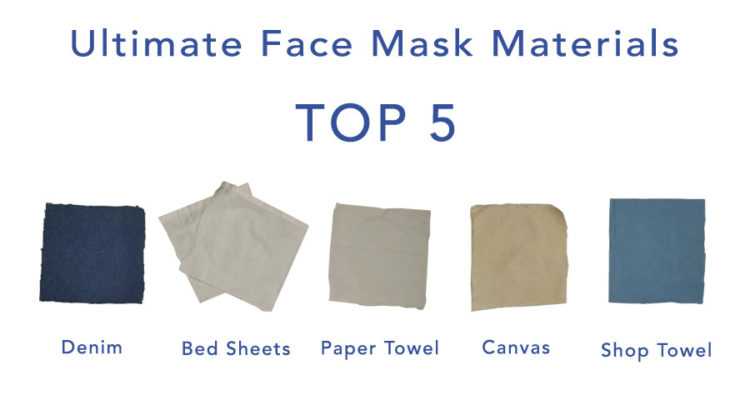MILAN – In early April, President Donald Trump suggested that scarves could be a perfectly suitable substitute for masks. A new study of the best and worst materials for DIY face masks just proved he was absolutely incorrect.
Smart Air, a social enterprise that promotes cost-effective, data-backed air filters as a solution to indoor particulate air pollution, has released the results of their latest research on DIY face mask materials.
During the research, they tested over the past several weeks more than 30 different materials ― including bra pads, coffee filters, pillow cases, electrostatic cloths, cotton T-shirts, wool, bed sheets, polyester, bandanas and more ― for their effectiveness in filtering coronavirus-sized microparticles, as well as their breathability.
Both those factors are vital, because while some materials may test high for filtration, they test low for breathability ― a mask you can’t actually breathe in isn’t exactly helpful to anyone.
Among the key takeaways: Trump’s scarves tested among the least effective materials, while denim, canvas and paper towels were among the best.
How the testing worked
Smart Air aimed to mimic the test setup used by Cambridge University researchers, known as a Henderson apparatus, in which a fan blows air and particles through the mask material. The materials were tested for their ability to filter large-sized (1 micron, similar to the size of the Ebola virus) and small-sized (0.3 micron, the size of the smallpox virus) particles and for their breathability factor. For reference, COVID-19 coronavirus particles measure 0.06-0.14 microns in size, but 5-10 microns when in droplets.
“There is a huge demand for information worldwide right now about what makes a safe and effective DIY face mask, but there is also a lot of fear and misinformation,” Smart Air CEO and aeronautical engineer Paddy Robertson said in a press release. “By releasing this data, and continuing to be totally transparent about our methodology, we hope to help individuals, institutions and potentially even governments make good, data-backed decisions about how to make face masks that will actually protect them.”
Coffee filters are no longer recommended for DIY masks
The new study showed that while coffee filters are extremely effective at filtering microparticles, they score very poorly on the breathability scale, knocking them off the list of recommended DIY mask materials. “Coffee filters, although very effective at filtering virus-sized particles, won’t make great masks,” Robertson said in the release. “They’re just too difficult to breathe through.”
Scarves failed the test, big time
“Trump’s suggestion of using scarves as face masks may not be the best choice,” Robertson said. “Our tests showed that the three scarves we tested scored consistently low on their ability to capture tiny particles. Perhaps Trump should check out our data and update the general public.”
The three scarves tested ― made of merino wool, cashmere and lightweight ramie (similar to linen) ― all captured fewer than 10% of smallpox-sized particles. The worst scarf material – 100% ramie – filtered just 2.8%.
The best overall materials for DIY face masks
Based on a combination of breathability and filtration effectiveness, the study recommended denim, bed sheets (80-120 thread count), paper towels, canvas (0.4-0.5mm thick) and shop towels for homemade masks.
Keep in mind, however, that paper towels are not washable or reusable
The 0.4-0.5mm thick canvas material ranked as being easier to breathe through than a surgical mask, while still performing fairly well at filtering particles. But if thick fabrics aren’t available to you, the study’s data showed that 100% cotton T-shirts, layered up, are also still effective options for homemade masks.
In general, natural materials are a better option than synthetic ones. Because synthetic fibers (like polyester) tend to be smooth, they don’t filter out particles as well as the rougher texture of natural fibers (like 100% cotton).


















